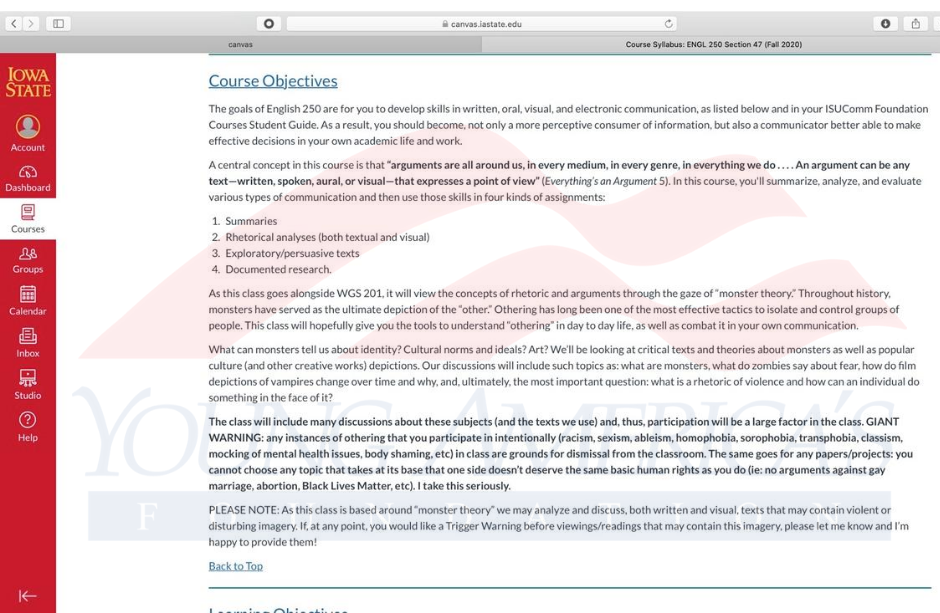It’s the first day of classes in Ames at Iowa State University. For the procrastinators that put off reading their English course outline until the last minute, they may have gotten a shock when they finally got around to it. In the course syllabus for professor Chloe Clark’s English 250 class, there is a broad disclaimer that warned students if they disagree with her on topics such as gay marriage, abortion, or the black lives matter movement, they would be dismissed.

The Young Americas Foundation first reported this story. A screenshot of the English 250 syllabus was submitted to YAF’s Campus Bias Tip Line.
GIANT WARNING: any instances of othering that you participate in intentionally (racism, sexism, ableism, homophobia, sorophobia, transphobia, classism, mocking of mental health issues, body shaming, etc.) in class are grounds for dismissal from the classroom. The same goes for any papers/projects: you cannot choose any topic that takes at its base that one side doesn’t deserve the same basic human rights as you do (ie: no arguments against gay marriage, abortion, Black Lives Matter, etc.). I take this seriously.
The English 150 and 250 courses are often mandatory for students to receive their degrees unless they opt to test out of them.
Iowa State University provided this statement in response to Iowa Field Report’s query:
The syllabus statement as written was inconsistent with the university’s standards and its commitment to the First Amendment rights of students. After reviewing this issue with the faculty member, the syllabus has been corrected to ensure it is consistent with university policy. Moreover, the faculty member is being provided additional information regarding the First Amendment policies of the university.
Iowa State is firmly committed to protecting the First Amendment rights of its students, faculty, and staff. With respect to student expression in the classroom, including the completion of assignments, the university does not take disciplinary action against students based on the content or viewpoints expressed in their speech.



